
Sukhothai: The Dawn of Happiness in Thailand
Sukhothai, a UNESCO World Heritage Site, is the cradle of Thai civilization. Nestled in northern Thailand, it offers a glimpse into the country's glorious past. The city is renowned for its historic park, where ancient temples and monuments stand as a testament to Sukhothai's golden era during the 13th and 14th centuries. Visitors can explore the well-preserved ruins of Wat Mahathat, Wat Si Chum, and many other sacred sites that echo the grandeur of the Sukhothai Kingdom. Beyond the historical allure, Sukhothai is a haven for nature lovers. The surrounding countryside boasts lush landscapes, serene water bodies, and picturesque rice fields. Cycling through these scenic routes is a popular activity, offering a tranquil escape from the hustle and bustle of modern life. The city also hosts various cultural festivals, such as Loy Krathong, where the night sky is illuminated with floating lanterns, creating a magical atmosphere. In Sukhothai, culinary enthusiasts can savor authentic Thai cuisine, with local specialties that reflect the region's rich agricultural heritage. The night market is a must-visit, offering an array of street food that will tantalize your taste buds. Whether you are a history buff, a nature enthusiast, or a foodie, Sukhothai promises a fulfilling and enriching experience.
Local tips in Sukhothai
- Rent a bicycle to explore Sukhothai Historical Park at your own pace.
- Visit early in the morning or late afternoon to avoid the heat and crowds.
- Try the local specialty 'Sukhothai noodles' at the night market.
- Don't miss the Loy Krathong festival if you're visiting in November.
- Stay in a guesthouse near the historical park for easy access to the ruins.
Sukhothai: The Dawn of Happiness in Thailand
Sukhothai, a UNESCO World Heritage Site, is the cradle of Thai civilization. Nestled in northern Thailand, it offers a glimpse into the country's glorious past. The city is renowned for its historic park, where ancient temples and monuments stand as a testament to Sukhothai's golden era during the 13th and 14th centuries. Visitors can explore the well-preserved ruins of Wat Mahathat, Wat Si Chum, and many other sacred sites that echo the grandeur of the Sukhothai Kingdom. Beyond the historical allure, Sukhothai is a haven for nature lovers. The surrounding countryside boasts lush landscapes, serene water bodies, and picturesque rice fields. Cycling through these scenic routes is a popular activity, offering a tranquil escape from the hustle and bustle of modern life. The city also hosts various cultural festivals, such as Loy Krathong, where the night sky is illuminated with floating lanterns, creating a magical atmosphere. In Sukhothai, culinary enthusiasts can savor authentic Thai cuisine, with local specialties that reflect the region's rich agricultural heritage. The night market is a must-visit, offering an array of street food that will tantalize your taste buds. Whether you are a history buff, a nature enthusiast, or a foodie, Sukhothai promises a fulfilling and enriching experience.
When is the best time to go to Sukhothai?
Iconic landmarks you can’t miss
Sukhothai Historical Park
Explore Sukhothai Historical Park, a UNESCO World Heritage Site showcasing the majestic ruins of ancient Thailand and the beauty of its historical legacy.
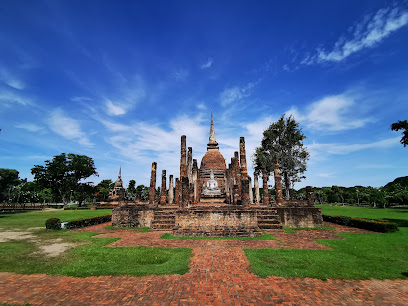
Wat Si Chum
Discover the serenity and historical grandeur of Wat Si Chum, a must-visit temple in Sukhothai, Thailand, renowned for its majestic Buddha statue.
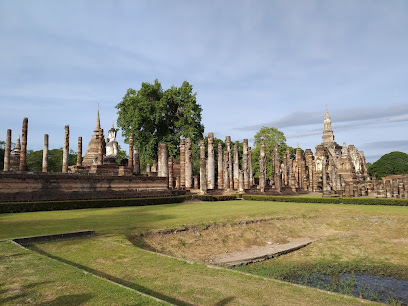
Wat Mahathat
Discover the tranquility and historical significance of Wat Mahathat, a stunning Buddhist temple in Sukhothai that celebrates Thailand's rich cultural heritage.
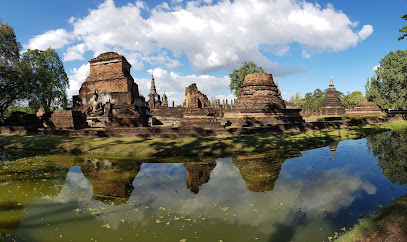
Si Satchanalai Historical Park
Explore the enchanting ruins and lush landscapes of Si Satchanalai Historical Park, a UNESCO World Heritage Site rich in history and natural beauty.
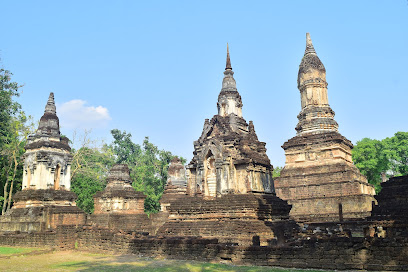
Ramkhamhaeng National Park
Discover the breathtaking landscapes and rich history of Ramkhamhaeng National Park, a national treasure in Sukhothai, Thailand.
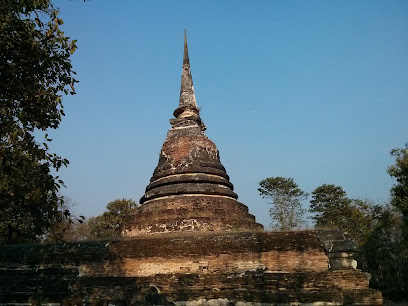
Wat Chang Lom Si Satchanalai
Discover the stunning Wat Chang Lom, a historical landmark in Si Satchanalai, showcasing ancient architecture and a rich cultural heritage.
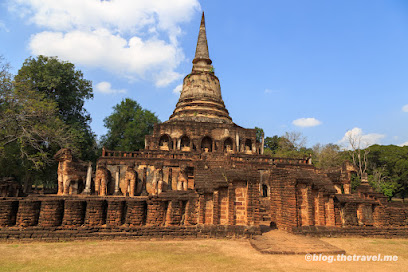
Wat Si Sawai
Discover the serene beauty of Wat Si Sawai, a historical landmark in Sukhothai showcasing unique Khmer architecture and rich cultural heritage.
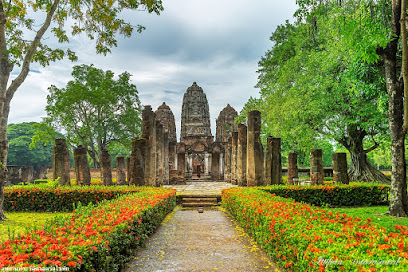
Wat Traphang Thong
Discover the tranquility and spiritual heritage of Wat Traphang Thong, a must-visit Buddhist temple in Sukhothai, Thailand.
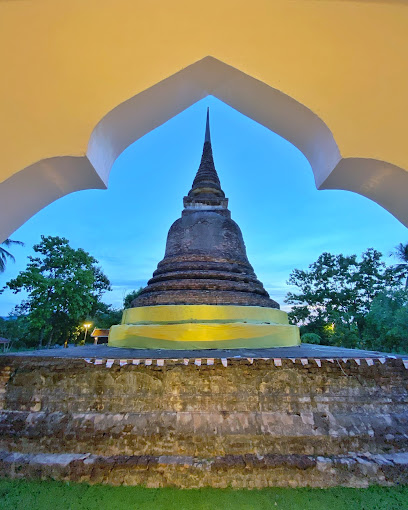
Wat Saphan Hin
Discover the tranquility and historical significance of Wat Saphan Hin, an ancient temple with stunning views and rich cultural heritage in Sukhothai.
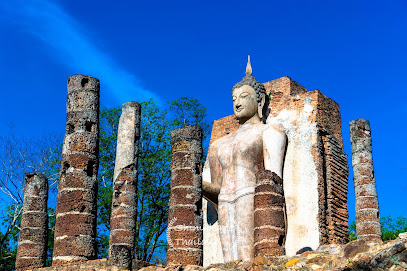
The Holy Heartland - Talayluang
Explore The Holy Heartland - Talayluang, a serene park in Sukhothai, where nature meets cultural heritage in a peaceful setting.
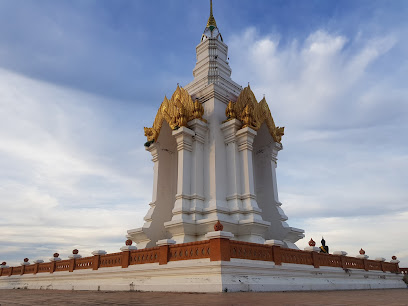
Wat Sa Si
Discover the serene beauty and historical significance of Wat Sa Si, a stunning Buddhist temple in Sukhothai, Thailand, surrounded by tranquil waters and lush landscapes.
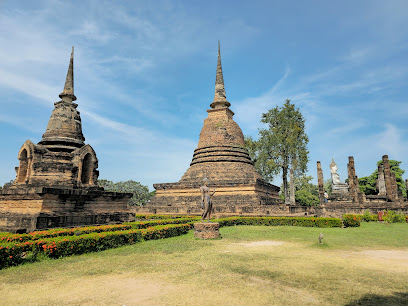
King Ramkhamhaeng Monument
Explore the King Ramkhamhaeng Monument in Sukhothai, a stunning tribute to Thailand's history and culture amidst the breathtaking landscapes of the Historical Park.
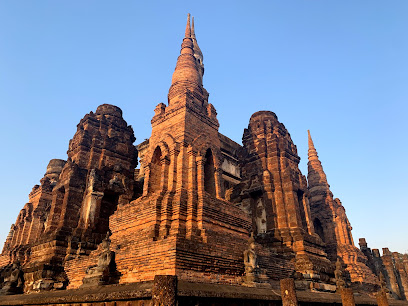
Sukhothai Night Market
Experience the vibrant flavors and rich culture at Sukhothai Night Market, a must-visit culinary destination in Thailand.
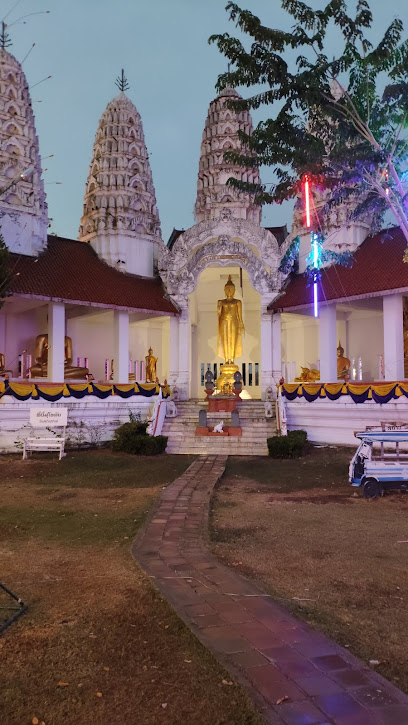
Wat Chang Lom
Discover Wat Chang Lom, a historical landmark in Sukhothai, Thailand, showcasing stunning elephant statues and rich ancient heritage.
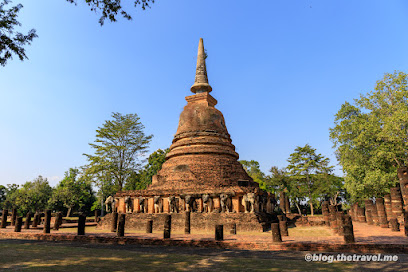
Wat Phrapai Luang
Discover the architectural splendor of Wat Phrapai Luang, a historic Khmer-style temple in Sukhothai, steeped in rich cultural heritage and beauty.
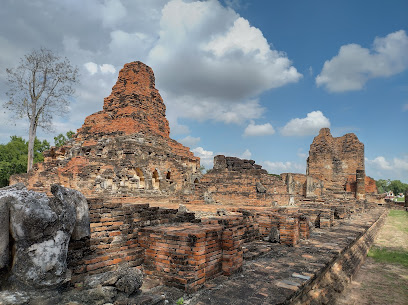
Unmissable attractions to see
Sukhothai Historical Park
Discover the ancient splendor of Sukhothai Historical Park, a UNESCO World Heritage Site showcasing Thailand's rich cultural heritage and stunning architecture.
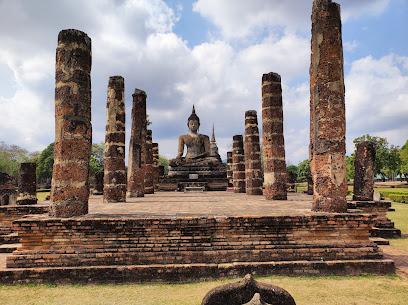
Wat Si Chum
Explore the majestic Wat Si Chum, a historical temple in Sukhothai showcasing stunning architecture and the iconic seated Buddha statue.
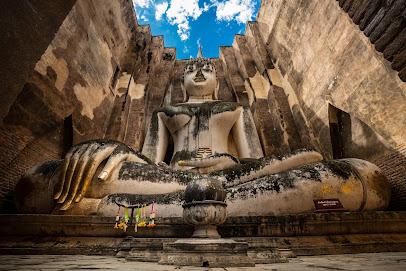
Wat Mahathat
Discover the architectural beauty and rich history of Wat Mahathat, a UNESCO World Heritage Site in Sukhothai, Thailand.
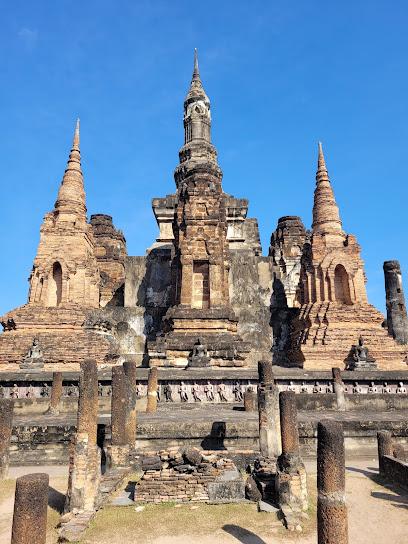
Si Satchanalai Historical Park
Discover the ancient wonders of Si Satchanalai Historical Park, a UNESCO World Heritage Site showcasing Thailand's rich cultural and historical heritage amidst stunning landscapes.
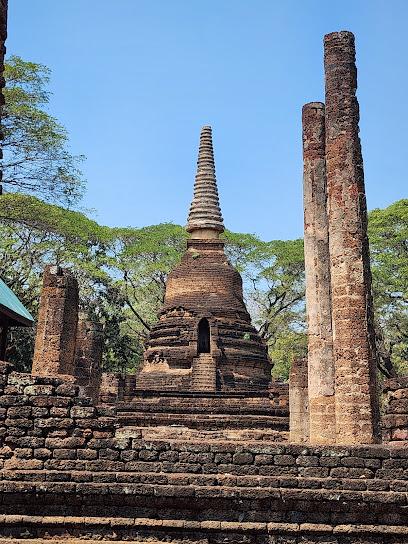
Wat Chang Lom Si Satchanalai
Discover the awe-inspiring Wat Chang Lom, a historical landmark in Si Satchanalai, Thailand, showcasing ancient architecture and rich cultural heritage.
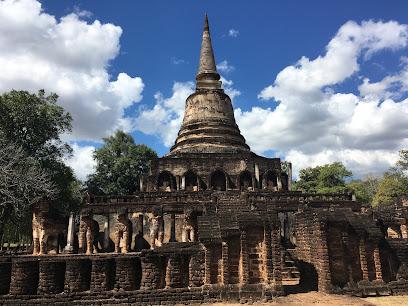
Wat Si Sawai
Explore the enchanting Wat Si Sawai, a historical landmark in Sukhothai, Thailand, showcasing exquisite Khmer architecture and serene landscapes.
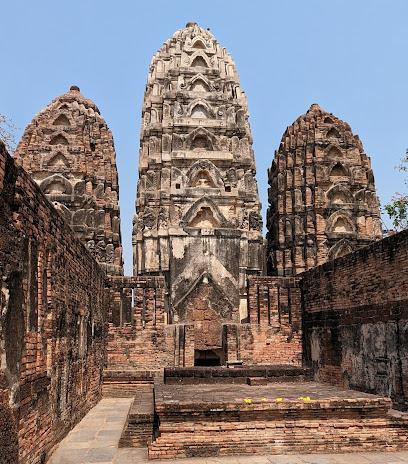
The Holy Heartland - Talayluang
Explore the serene beauty and historical richness of The Holy Heartland - Talayluang in Sukhothai, Thailand, a perfect escape for tourists.
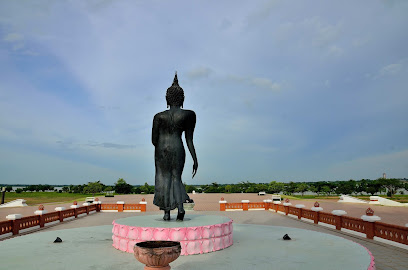
Wat Chang Lom
Discover the serene beauty and historical significance of Wat Chang Lom, a remarkable temple in Sukhothai, Thailand, adorned with majestic elephant sculptures.
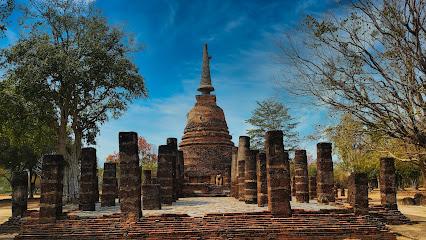
King Ramkhamhaeng Monument
Explore the King Ramkhamhaeng Monument, a captivating tribute to Thailand's history and culture in the heart of Sukhothai.
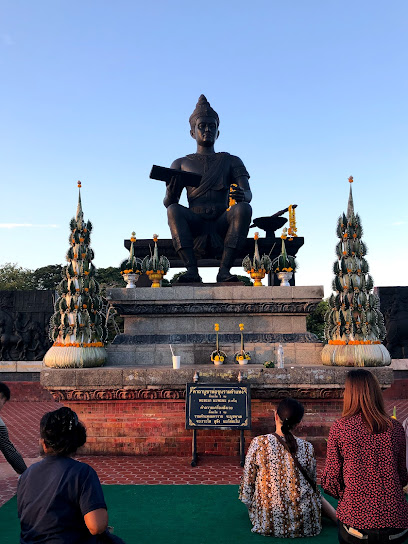
Wat Chang Lom
Explore the serene beauty and historical significance of Wat Chang Lom, a stunning temple in Sukhothai, a UNESCO World Heritage Site.
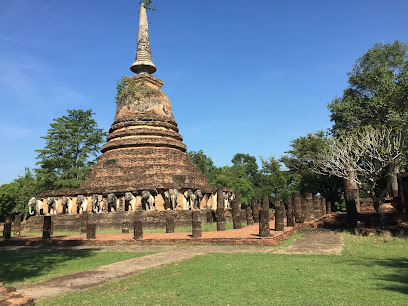
Rama 9 Commemmoration Park Sukhothai Province
Discover the serene beauty of Rama 9 Commemmoration Park in Sukhothai, Thailand—a perfect blend of nature and tranquility.
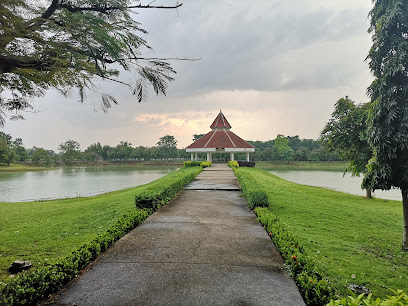
Phra Mae Ya Shrine
Explore the serene Phra Mae Ya Shrine in Sukhothai, a spiritual haven steeped in Thai culture, history, and tranquility.
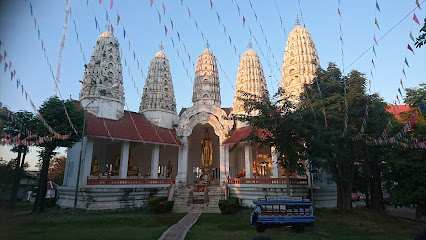
Ramkhamhaeng National Museum
Explore the rich history of Thailand at the Ramkhamhaeng National Museum, home to remarkable archaeological treasures and cultural insights.
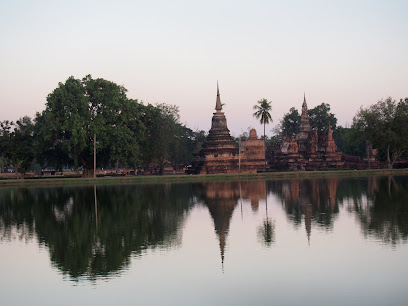
Sukhothai Buddha Park
Discover the serene beauty of Sukhothai Buddha Park, a cultural gem featuring stunning Buddha statues and tranquil gardens in Thailand's historical heart.
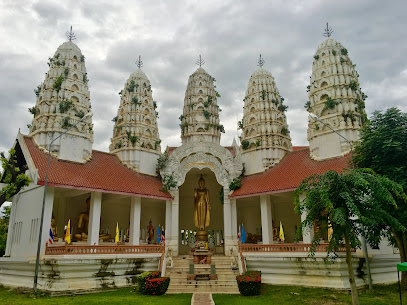
Wat Traphang Ngoen
Discover the tranquil beauty and historical significance of Wat Traphang Ngoen in Sukhothai, a UNESCO World Heritage Site.
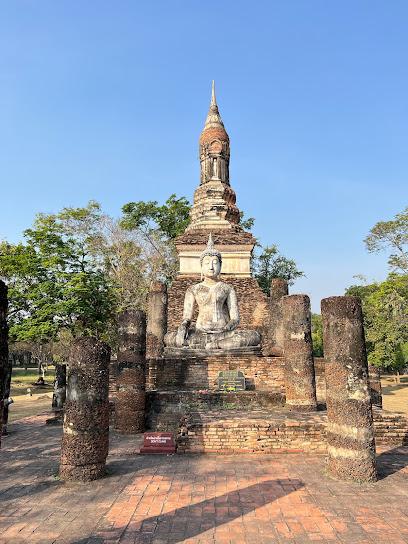
Essential places to dine
Ta Puy Noodle
Experience authentic Thai cuisine at Ta Puy Noodle in Sukhothai – where delicious flavors meet warm hospitality.
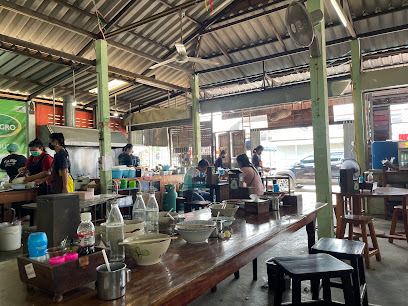
Jay Hae Sukhothai Noodles
Discover authentic Thai flavors at Jay Hae Sukhothai Noodles – a local favorite for delicious noodle dishes in the heart of Sukhothai.
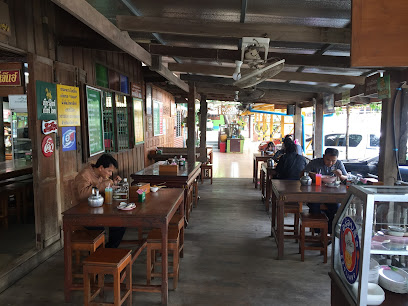
Pizza Tao Fuun
Discover the fusion of authentic Thai cuisine and gourmet pizza at Pizza Tao Fuun in Sukhothai – a must-visit culinary destination.
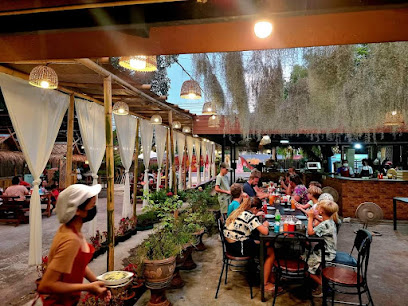
Sinvana Thai Restaurant
Experience authentic Thai cuisine at Sinvana Thai Restaurant near Sukhothai Historical Park - where flavor meets tradition in a serene setting.
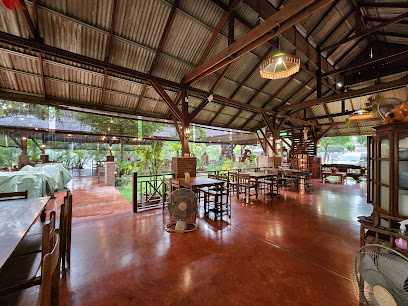
Poo Restaurant
Experience authentic Thai cuisine at Poo Restaurant in Sukhothai - where tradition meets flavor in every dish.
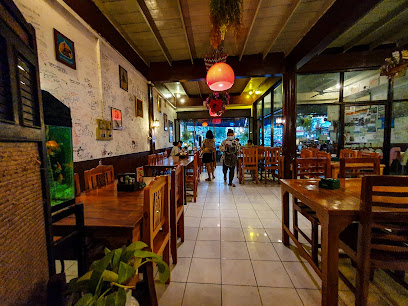
Fueng Fah Pla Maenam Restaurant
Discover authentic Thai flavors at Fueng Fah Pla Maenam Restaurant in Sukhothai - where tradition meets taste.
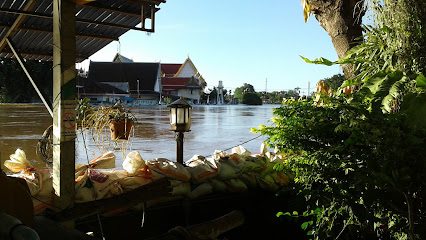
Na Kothai
Experience authentic Thai flavors at Na Kothai, a hidden gem in Sukhothai offering delicious cuisine in a cozy atmosphere.
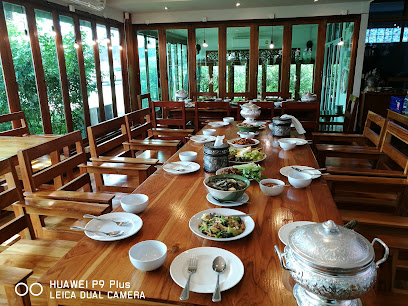
Ban Kru Eiw Restaurant
Experience authentic Thai cuisine at Ban Kru Eiw Restaurant in Sukhothai - a culinary haven filled with traditional flavors and warm hospitality.
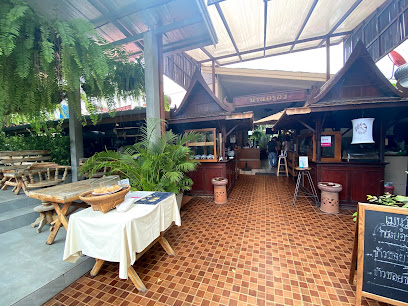
Sureerat Restaurant
Discover traditional Thai flavors at Sureerat Restaurant in Mueang Sukhothai - a culinary delight for every visitor.
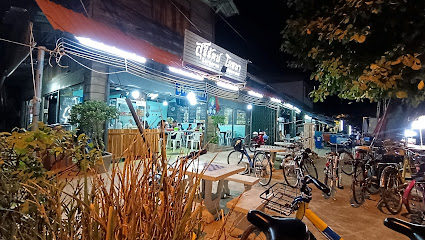
Ruean Thai Hotel
Discover exceptional hospitality and delicious local cuisine at Ruean Thai Hotel in historic Sukhothai.
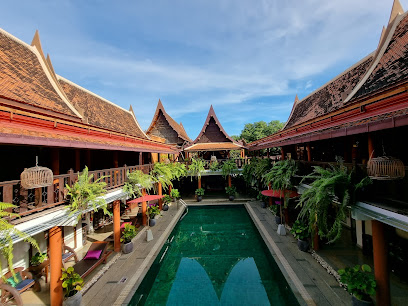
Sweet Rice Cafe'
Discover authentic Thai flavors and delightful desserts at Sweet Rice Cafe', a must-visit culinary destination in Sukhothai.
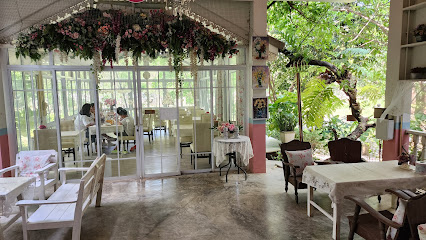
Chopper Bar
Discover delicious traditional Thai cuisine at Chopper Bar in Mueang Sukhothai District – an unforgettable dining experience awaits you.
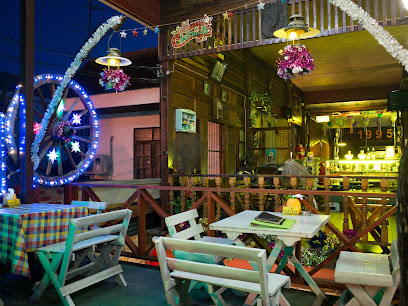
CHECK IN Eatery เช็คอิน อีทเทอรี่
Experience the best of Sukhothai's culinary scene at CHECK IN Eatery, where authentic flavors meet warm hospitality.
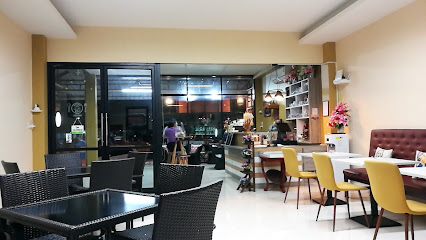
Janthong
Discover authentic Sukhothai flavors at Janthong - a culinary delight nestled in Thailand's historic heart.
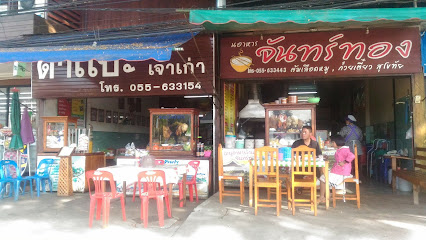
KIRIN Bar&Restaurant
Experience authentic Thai hospitality at KIRIN Bar & Restaurant in Sukhothai - where delicious cuisine meets family-friendly vibes.
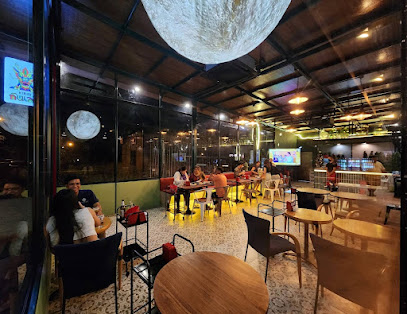
Markets, malls and hidden boutiques
Sukhothai Night Market
Discover the Sukhothai Night Market – a vibrant fusion of local delicacies, crafts, and cultural experiences under the night sky.
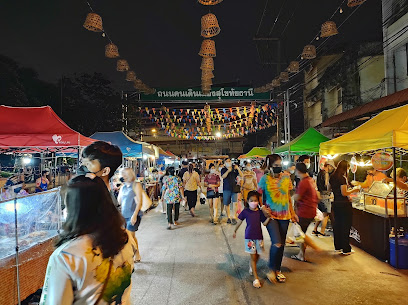
J-BAKE
Discover the sweet side of Sukhothai at J-BAKE, where delicious cakes, pastries, and coffee await to tantalize your taste buds.
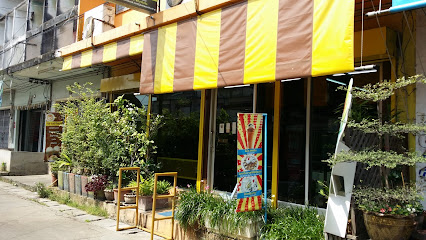
BLUE CRACK COFFEE - Coffee & Roastery
Experience the rich flavors of specialty coffee at Blue Crack Coffee, Sukhothai's premier coffee shop and roastery.
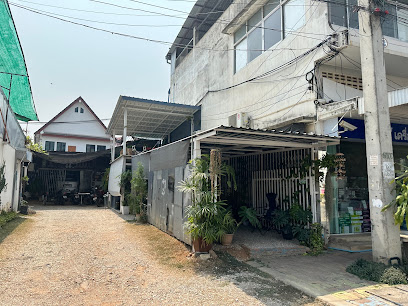
ร้านแม็กซ์เครื่องเขียน
Explore ร้านแม็กซ์เครื่องเขียน, a charming novelty store in Sukhothai offering unique souvenirs and whimsical gifts that capture the essence of Thailand.
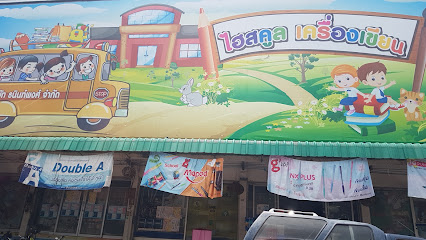
ธานี 420
Experience the essence of cannabis culture at 'ธานี 420', Sukhothai's premium cannabis store offering quality products in a welcoming atmosphere.
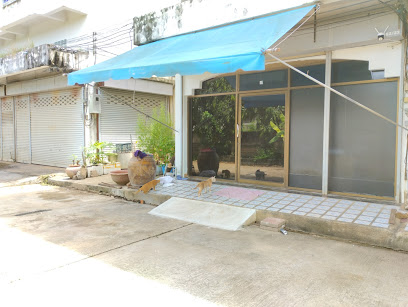
โฟล์คร็อค
Explore a world of musical instruments at โฟล์คร็อค in Sukhothai, where tradition meets modern sound. Discover, learn, and play!
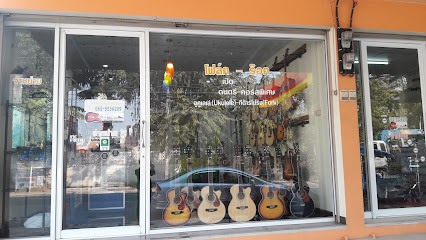
ร้านไฮสคูลเครื่องเขียน
Explore the delightful world of stationery at ร้านไฮสคูลเครื่องเขียน in Sukhothai, where creativity comes to life with every pen and paper.
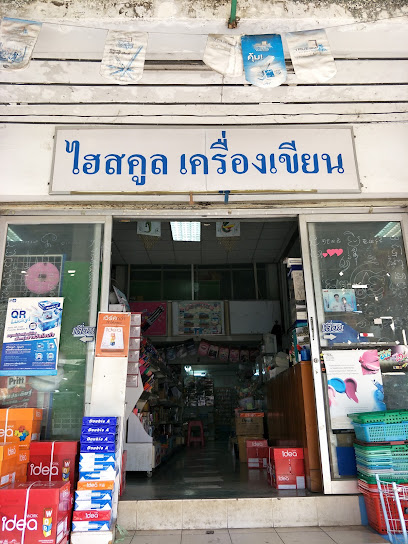
ท็อปแลนด์ มินิ สุโขทัย Topland mini
Shop local at Topland Mini Supermarket in Sukhothai for authentic Thai products and a glimpse into everyday life.
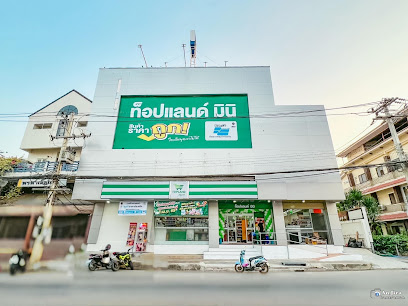
สถานีของฝาก@Sukhothai/Souvenir Shop
Uncover the heart of Sukhothai through handcrafted souvenirs and local treasures at the charming Sukhothai Souvenir Shop.
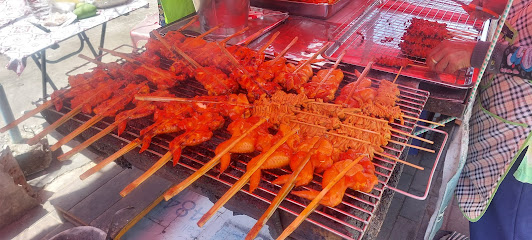
ร้านชามังกร สุโขทัย
Discover the best coffee experience at ร้านชามังกร in Sukhothai, where every cup tells a story and every visit is a delight.
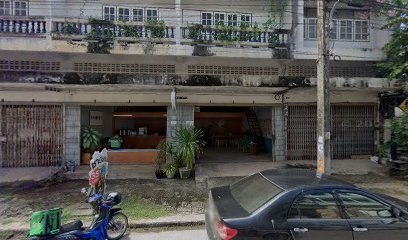
ปึ้งเซ่งฮวดบุ๊คเซ็นเตอร์
Discover a literary oasis in Sukhothai at ปึ้งเซ่งฮวดบุ๊คเซ็นเตอร์, where Thai culture and literature come alive.
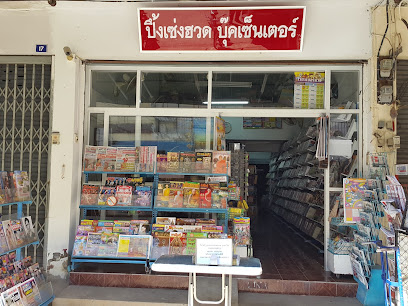
Cute Press สาขาสุโขทัย
Discover the latest beauty trends and products at Cute Press in Sukhothai, a vibrant beauty supply store perfect for locals and tourists alike.
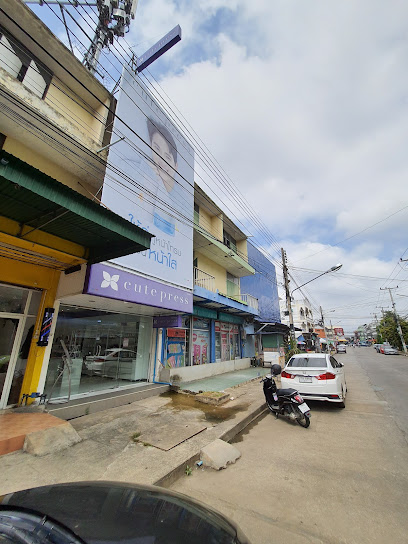
ร้าน PT SHOP
Discover the ultimate electronics shopping experience at PT SHOP in Sukhothai, offering a wide range of gadgets and friendly service.
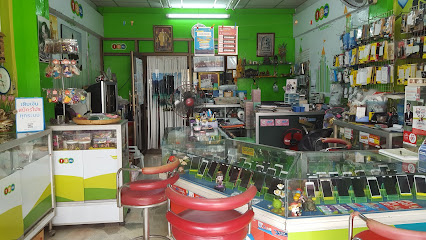
INTRO89 sukhothai(ริมน้ำยม)
Discover tranquility at INTRO89 Sukhothai, a coffee shop by the Yom River offering exquisite brews and serene riverside views.
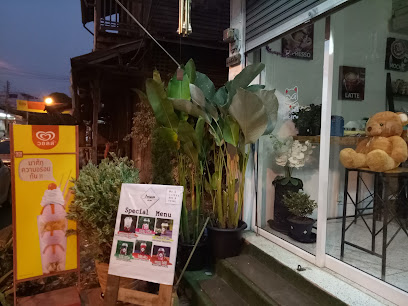
Nakhon San
Discover Nakhon San, a premier educational supply store in Sukhothai, offering a wide selection of stationery and learning materials for all ages.
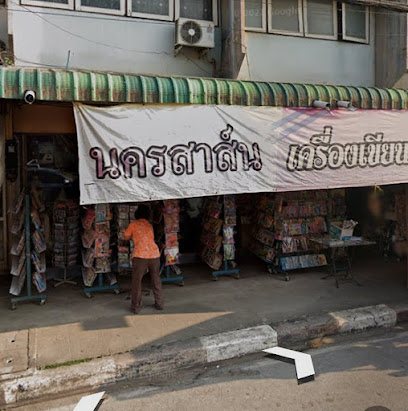
Essential bars & hidden hideouts
Poo Restaurant
Experience the essence of Thai cuisine at Poo Restaurant, a budget-friendly gem in the heart of Sukhothai, Thailand.
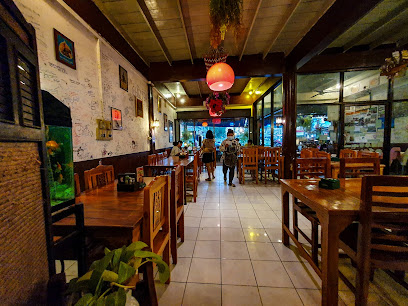
Chopper Bar
Experience the vibrant flavors of Thai cuisine at Chopper Bar in Sukhothai, where every meal is a celebration of taste and culture.
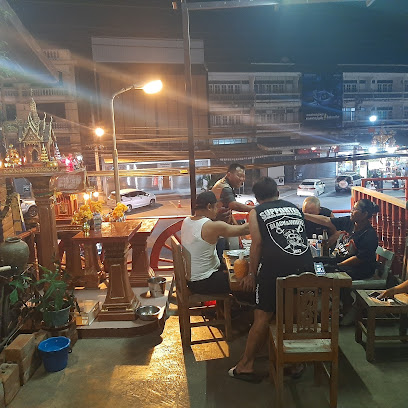
Bar 64000
Experience the vibrant nightlife of Sukhothai at Bar 64000, where local culture meets refreshing drinks in a lively atmosphere.
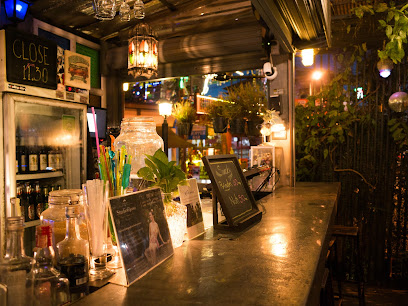
Baan Mai Hom Sukhothai
Experience the vibrant nightlife at Baan Mai Hom Sukhothai, where delicious drinks and a welcoming atmosphere await in the heart of Thailand's ancient capital.
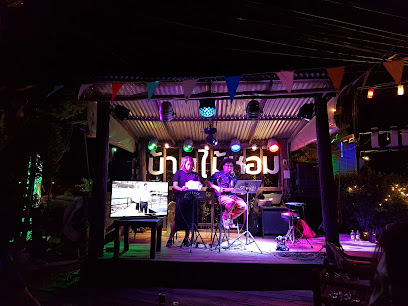
Fong Bear
Experience the vibrant nightlife at Fong Bear, Sukhothai's premier bar for unique drinks and a lively atmosphere.
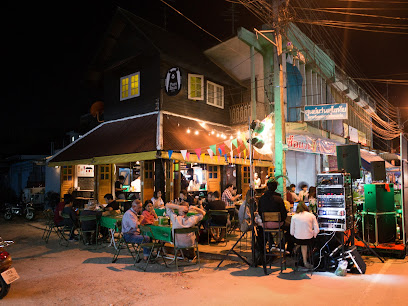
In Black
Discover authentic Thai cuisine at In Black, a vibrant restaurant in Sukhothai, where every dish tells a story of rich flavors and traditions.
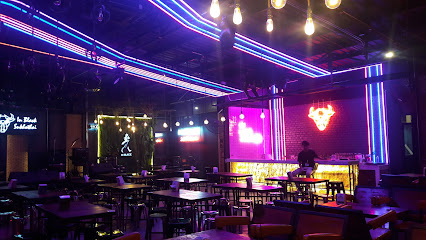
KIRIN Bar&Restaurant
Discover KIRIN Bar & Restaurant in Sukhothai - where exquisite dining meets a vibrant bar experience in a family-friendly setting.
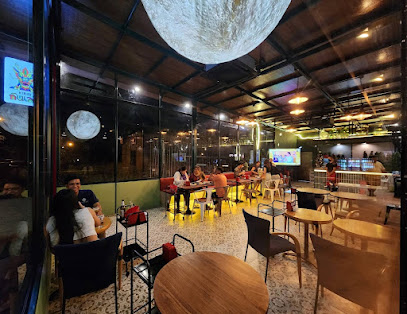
Space Bar - สเปซบาร์ สุโขทัย
Experience the fusion of local flavors and modern dining at Space Bar - a culinary gem in Sukhothai, Thailand.
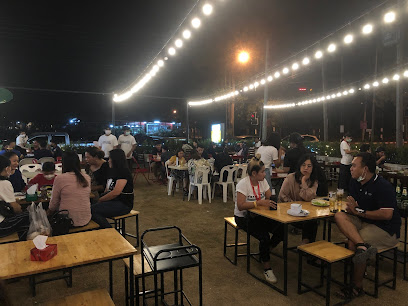
Support Siam City
Discover the vibrant nightlife at Support Siam City, a bar in Sukhothai offering a perfect blend of local flavors and a lively atmosphere.
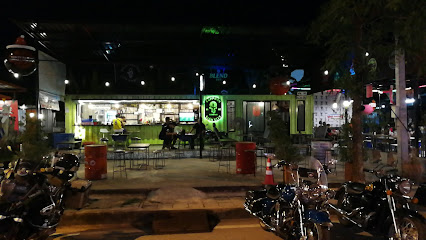
ร้าน999โฆษณา
Discover the vibrant atmosphere of ร้าน999โฆษณา, a lively bar in Sukhothai offering refreshing drinks and local charm.
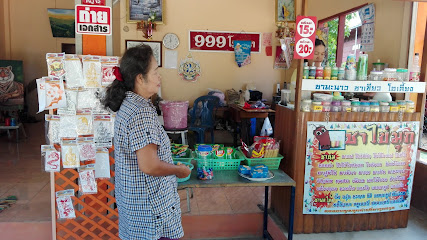
ร้านปรายฟ้า
Discover the charm of ร้านปรายฟ้า, a serene bar in Sukhothai offering refreshing drinks and local ambiance amidst beautiful surroundings.
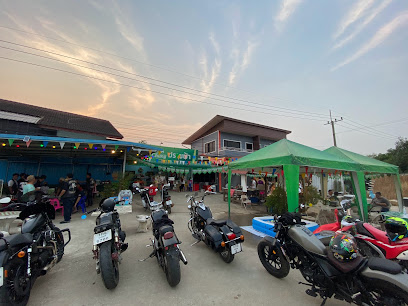
รัชดาRatchada@สุโขทัย
Discover the vibrant nightlife at Ratchada Bar in Sukhothai, where local flavors and lively entertainment meet!
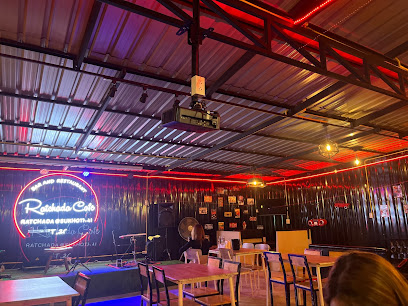
บ้านบ้าน บาร์
Explore the vibrant nightlife of Sukhothai at บ้านบ้าน บาร์, where local culture meets a relaxing atmosphere for an unforgettable evening.

ISAKAYA SUKHOTHAI
Discover the vibrant nightlife at ISAKAYA SUKHOTHAI, a bar in Sukhothai offering delightful drinks and a welcoming atmosphere.
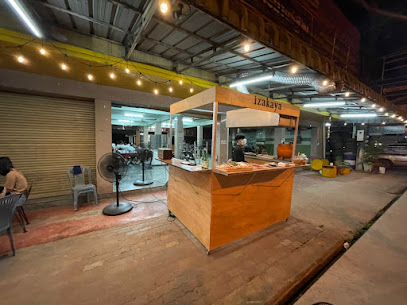
Travel experiences inspired by this city
Explore more travel diariesLocal Phrases
-
- Helloสวัสดี
[sawatdee] - Goodbyeลาก่อน
[la kon] - Yesใช่
[chai] - Noไม่
[mai] - Please/You're welcomeโปรด/ยินดีต้อนรับ
[proht/yin dee dton rap] - Thank youขอบคุณ
[kop khun] - Excuse me/Sorryขอโทษ
[kor toht] - How are you?คุณสบายดีไหม
[kun sabai dee mai] - Fine. And you?สบาย ขอบคุณ
[sabai, kop khun] - Do you speak English?คุณพูดภาษาอังกฤษได้ไหม
[kun poot paa saa ang grit dai mai] - I don't understandฉันไม่เข้าใจ
[chan mai kao jai]
- Helloสวัสดี
-
- I'd like to see the menu, pleaseฉันอยากดูเมนู ขอบคุณ
[chan yak duu menu, kop khun] - I don't eat meatฉันไม่กินเนื้อ
[chan mai gin neuua] - Cheers!ชนแก้ว!
[chon gaeo] - I would like to pay, pleaseฉันอยากจ่ายเงิน ขอบคุณ
[chan yak jai ngern, kop khun]
- I'd like to see the menu, pleaseฉันอยากดูเมนู ขอบคุณ
-
- Help!ช่วยด้วย
[chuai duay] - Go away!ไปทางนั้น
[bpai tang nan] - Call the Police!โทรตำรวจ
[tor tamruat] - Call a doctor!โทรหมอ
[tor mor] - I'm lostฉันเสียหลักทาง
[chan sia lak tang] - I'm illฉันไม่สบาย
[chan mai sabai]
- Help!ช่วยด้วย
-
- I'd like to buy...ฉันอยากซื้อ...
[chan yak seuu...] - I'm just lookingฉันแค่ดูอย่างเดียว
[chan kae du yang diao] - How much is it?ราคาเท่าไร
[ra ka thao rai] - That's too expensiveแพงเกินไป
[paeng geun pai] - Can you lower the price?ลดราคาได้ไหม
[lot ra ka dai mai]
- I'd like to buy...ฉันอยากซื้อ...
-
- What time is it?ตอนนี้เวลาเท่าไร
[ton nee welaa thao rai] - It's one o'clockเป็นโมงเดียว
[pen mong diao] - Half past (10)สี่โมงครึ่ง
[see mong krueng] - Morningเช้า
[chao] - Afternoonบ่าย
[bai] - Eveningเย็น
[yen] - Yesterdayเมื่อวาน
[meua waan] - Todayวันนี้
[wan nee] - Tomorrowพรุ่งนี้
[proong nee] - 1หนึ่ง
[neung] - 2สอง
[song] - 3สาม
[sam] - 4สี่
[see] - 5ห้า
[ha] - 6หก
[hok] - 7เจ็ด
[jet] - 8แปด
[baet] - 9เก้า
[gao] - 10สิบ
[sip]
- What time is it?ตอนนี้เวลาเท่าไร
-
- Where's a/the...?...อยู่ที่ไหน
[...yoo tee nai] - What's the address?ที่อยู่อย่างไร
[tee yoo yang rai] - Can you show me (on the map)?แสดงให้ดู (บนแผนที่) ได้ไหม
[sa-dang hai duu (bon paen tee) dai mai] - When's the next (bus)?รถมันมีตอนไหนถัดไป
[rot man mee ton nai tud pai] - A ticket (to ....)ตั๋ว (ไป...)
[dtua (bpai...)]
- Where's a/the...?...อยู่ที่ไหน
History of Sukhothai
-
Sukhothai, which means 'Dawn of Happiness,' was founded in 1238. It became the capital of the first independent Thai Kingdom after liberating itself from the Khmer Empire. The kingdom was established by two local leaders, Pho Khun Bang Klang Hao and Pho Khun Pha Muang, who played pivotal roles in uniting the region.
-
King Ramkhamhaeng, who ruled from 1279 to 1298, is one of the most revered figures in Sukhothai's history. He is credited with creating the Thai script, which laid the foundation for Thai literature and administrative records. His reign is often considered the Golden Age of Thai culture, marked by prosperity and cultural development.
-
Sukhothai's architectural style is unique, combining elements of Khmer and Sri Lankan influences. The city is home to numerous temples and monuments, including Wat Mahathat, the largest temple in Sukhothai, known for its impressive stupas and Buddha statues. The architectural marvels are a testament to the kingdom's artistic and spiritual achievements.
-
The decline of Sukhothai began in the late 14th century as Ayutthaya emerged as a dominant power in the region. By 1378, Sukhothai became a vassal state to Ayutthaya, and by the mid-15th century, it was fully integrated into the Ayutthaya Kingdom. This marked the end of Sukhothai's independence but also paved the way for cultural and political integration within Thailand.
-
In 1991, the historical park of Sukhothai was designated a UNESCO World Heritage Site. This recognition underscores the city's importance as a cultural and historical landmark. The park preserves the ruins of the old city, allowing visitors to explore the remnants of temples, palaces, and other structures that offer a glimpse into Sukhothai's glorious past.
-
Sukhothai is considered the cradle of Thai culture, language, and art. The city's legacy includes the development of Theravada Buddhism as the dominant religion in Thailand. The Ramkhamhaeng inscription, one of the earliest records in Thai script, provides valuable insights into the social, economic, and religious life of the period.
Sukhothai Essentials
-
Sukhothai is accessible via several means of transportation. The nearest major airport is Sukhothai Airport (THS), located approximately 32 kilometers north of the town. Flights from Bangkok’s Suvarnabhumi Airport (BKK) and Don Mueang International Airport (DMK) are available. Alternatively, you can take a bus from Bangkok to Sukhothai, which takes around 6-7 hours. There are also train services from Bangkok to Phitsanulok, followed by a bus or taxi ride to Sukhothai, which takes an additional hour.
-
In Sukhothai, transportation options include tuk-tuks, songthaews (shared taxis), and bicycles, which are a popular way to explore the historical park. Motorbikes and scooters are also available for rent. For longer distances, you can hire a car or use local taxi services. Public buses and minibuses operate between Sukhothai and nearby towns and cities.
-
The official currency in Thailand is the Thai Baht (THB). Credit cards are widely accepted in hotels, restaurants, and larger shops, but it's advisable to carry cash for smaller establishments and street vendors. ATMs are available throughout Sukhothai, and currency exchange services can be found at banks and exchange booths.
-
Sukhothai is generally a safe destination for tourists. However, it's important to take standard precautions. Avoid walking alone at night in unfamiliar areas and keep an eye on your belongings in crowded places. While Sukhothai does not have specific high-crime areas targeting tourists, staying vigilant and aware of your surroundings is always advisable.
-
In case of emergency, dial 191 for police assistance or 1669 for medical emergencies. Sukhothai Hospital provides medical services, and there are several clinics and pharmacies available for minor health issues. It is recommended to have travel insurance that covers medical emergencies. Keep a list of emergency contacts and local embassy information handy.
-
Fashion: Do dress modestly, especially when visiting temples. Avoid wearing revealing clothing. Religion: Do show respect at religious sites by removing your shoes and covering your shoulders and knees. Public Transport: Do be respectful and offer seats to elderly passengers. Don’t speak loudly or eat on public transport. Greetings: Do greet people with a traditional Thai 'wai' (a slight bow with hands pressed together). Eating & Drinking: Do try local dishes and street food. Don’t refuse food or drink offerings as it is considered impolite.
-
To experience Sukhothai like a local, visit the local markets such as Talad Ton Makham and Sukhothai Night Market for fresh produce and local delicacies. Rent a bicycle to explore the Sukhothai Historical Park at your own pace. Engage with locals, who are often friendly and willing to share stories about their rich cultural heritage. Don’t miss the Loi Krathong festival if you’re visiting in November, a unique cultural experience with traditional lanterns and floating offerings.
Trending Landmark in Sukhothai
-
Sukhothai Historical Park
-
Wat Si Chum
-
Wat Mahathat
-
Si Satchanalai Historical Park
-
Ramkhamhaeng National Park
-
Wat Chang Lom Si Satchanalai
-
Wat Si Sawai
-
Wat Traphang Thong
-
Wat Saphan Hin
-
The Holy Heartland - Talayluang
-
Wat Sa Si
-
King Ramkhamhaeng Monument
-
Sukhothai Night Market
-
Wat Chang Lom
-
Wat Phrapai Luang
Nearby Cities to Sukhothai
-
Things To Do in Loei
-
Things To Do in Chiang Mai
-
Things To Do in Nan
-
Things To Do in Hpa-An
-
Things To Do in Mae Hong Son
-
Things To Do in Kyaiktiyo
-
Things To Do in Pai
-
Things To Do in Ayutthaya
-
Things To Do in Vientiane
-
Things To Do in Udon Thani
-
Things To Do in Chiang Rai
-
Things To Do in Kanchanaburi
-
Things To Do in Nakhon Ratchasima
-
Things To Do in Vang Vieng
-
Things To Do in Bangkok















